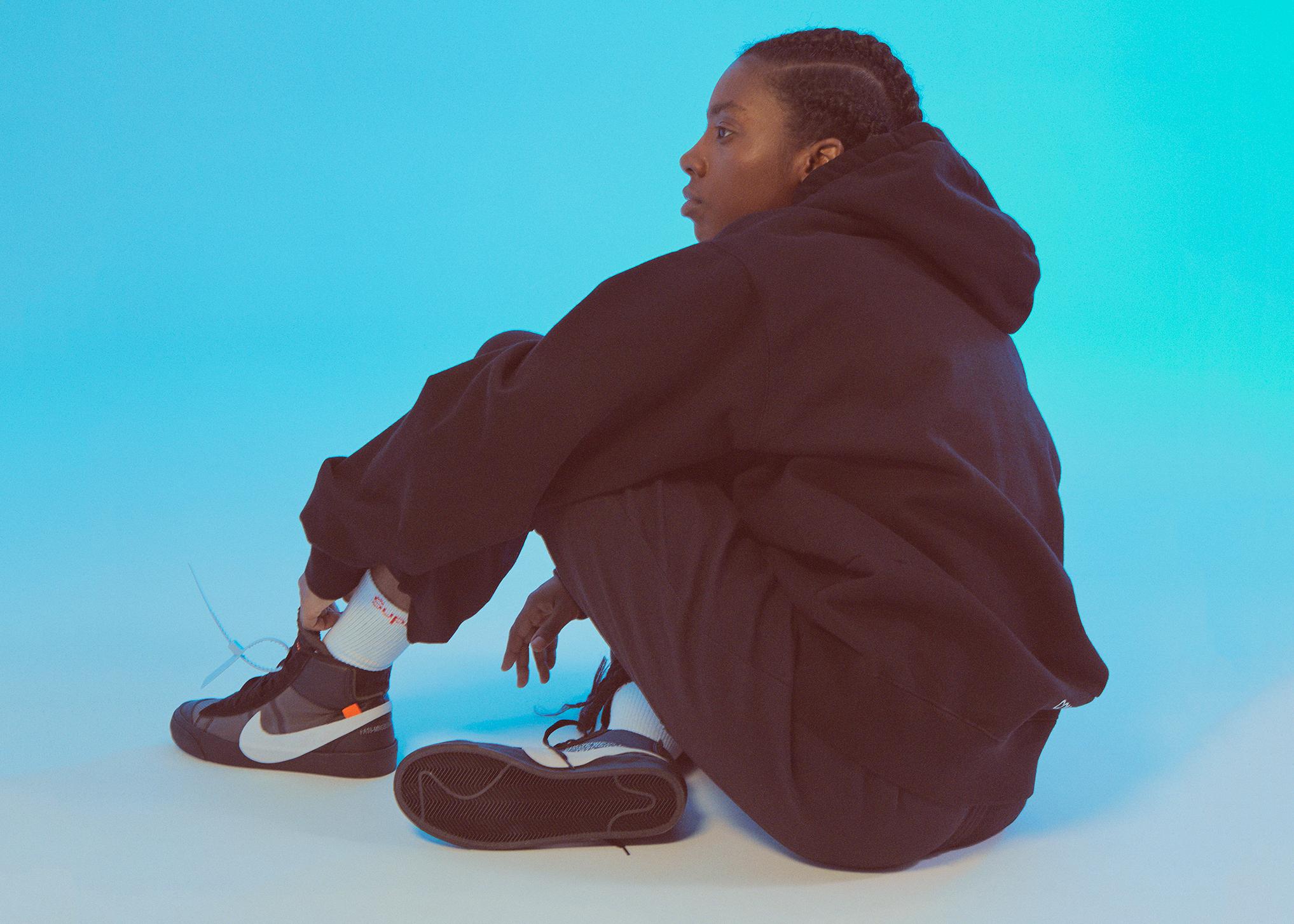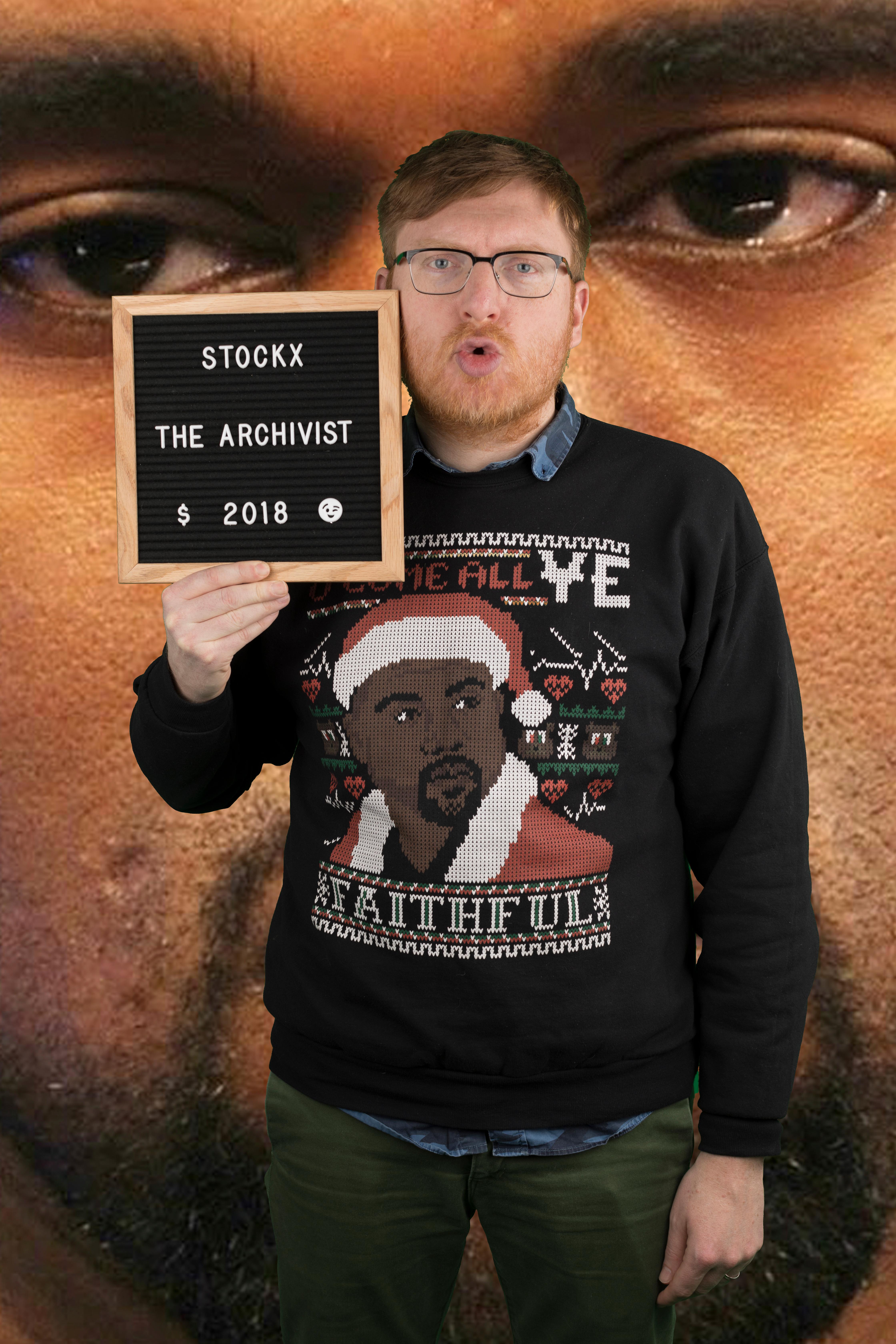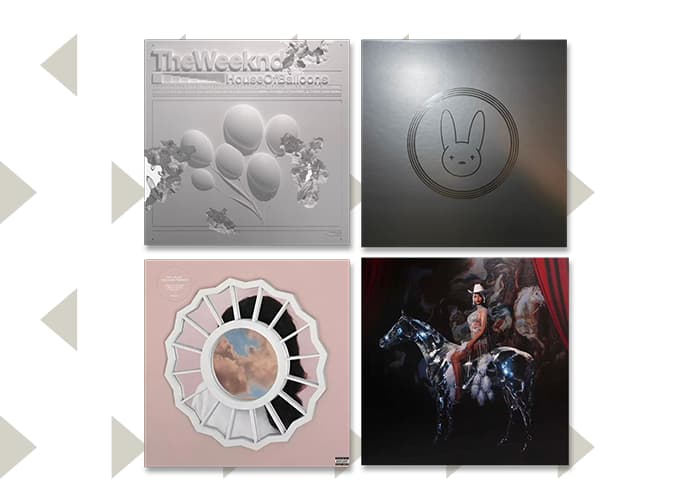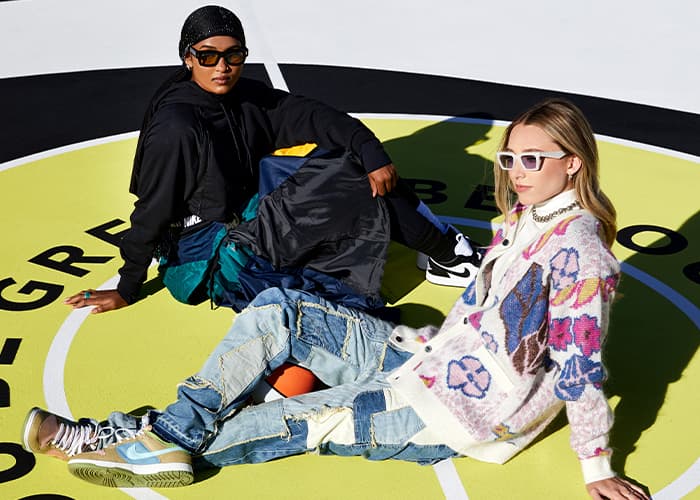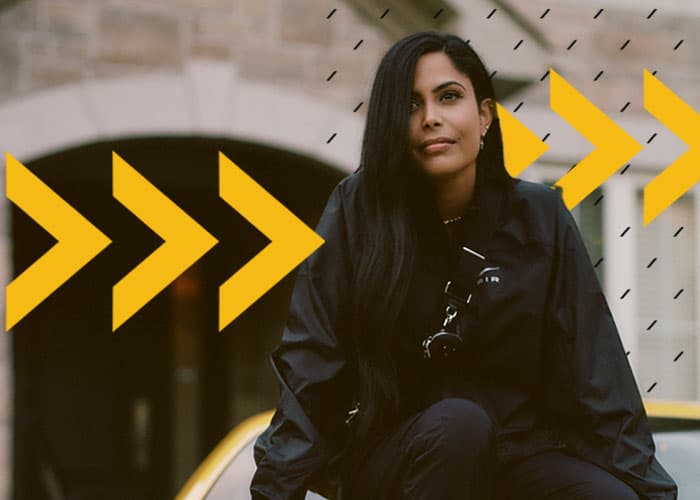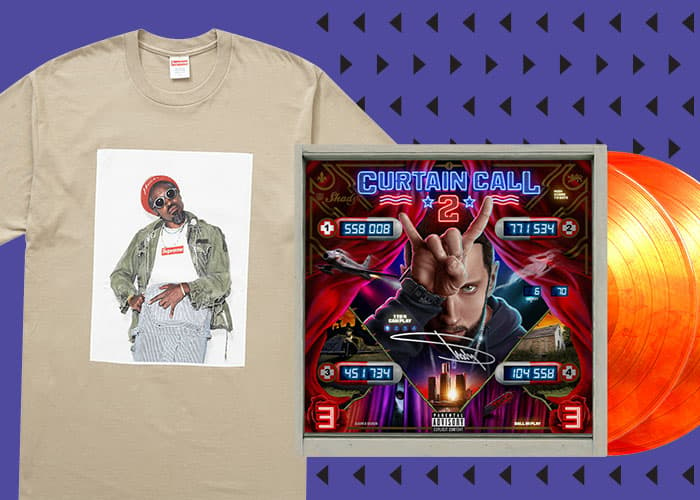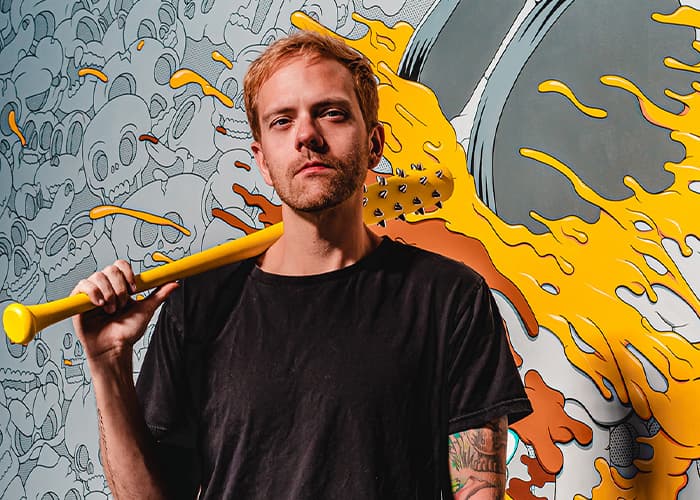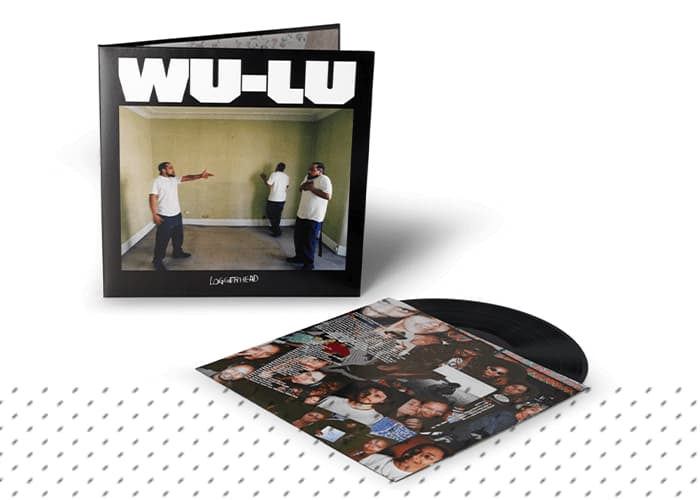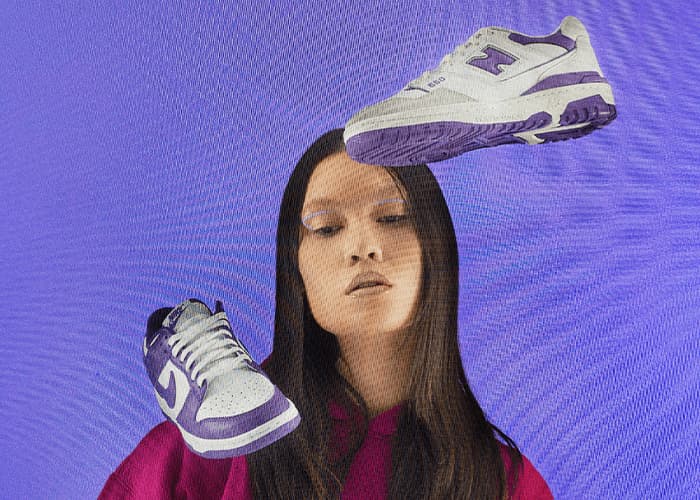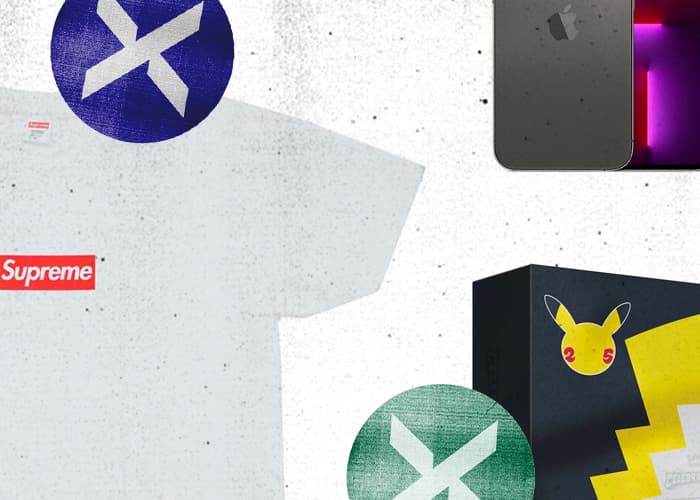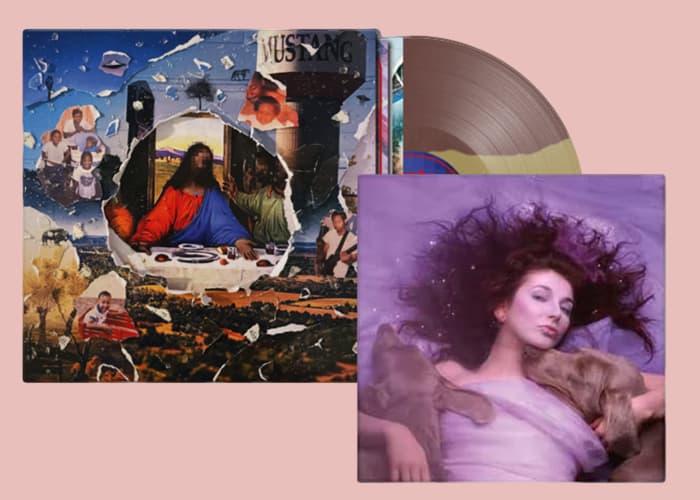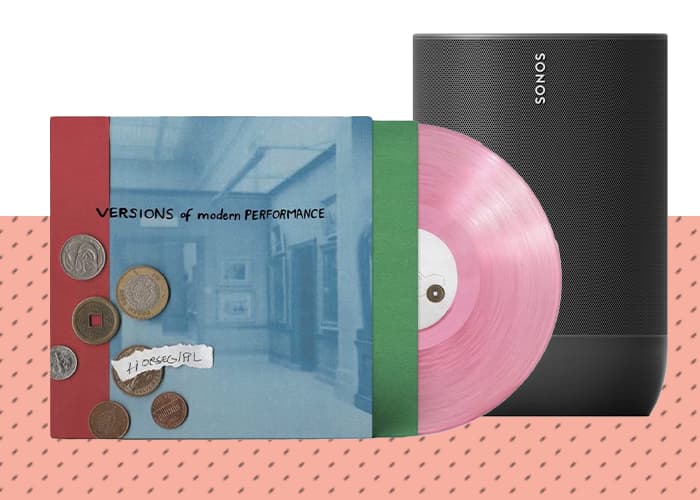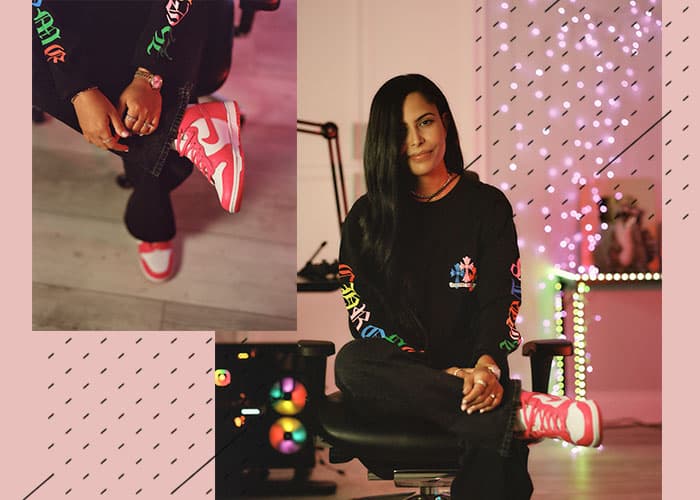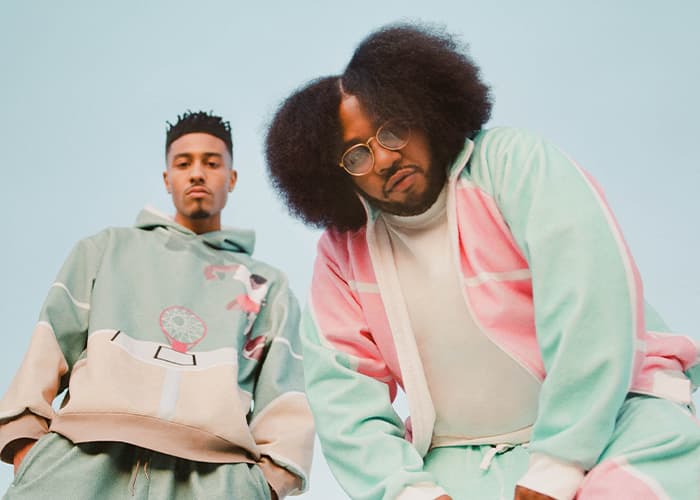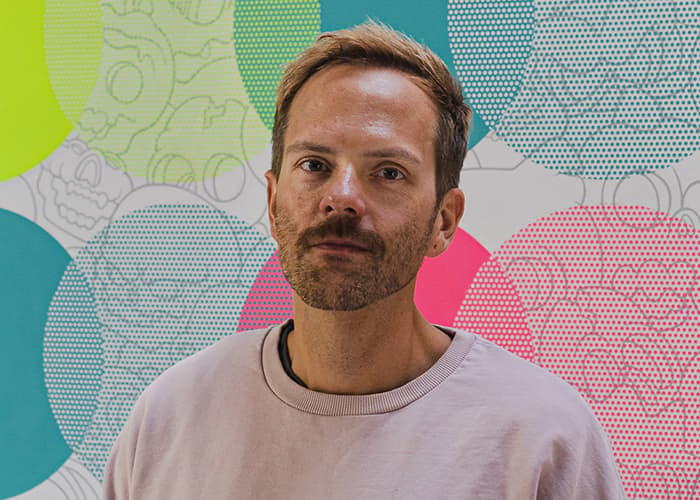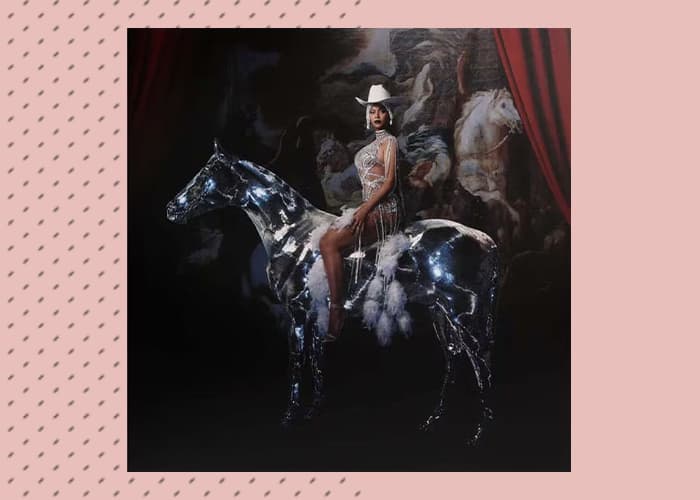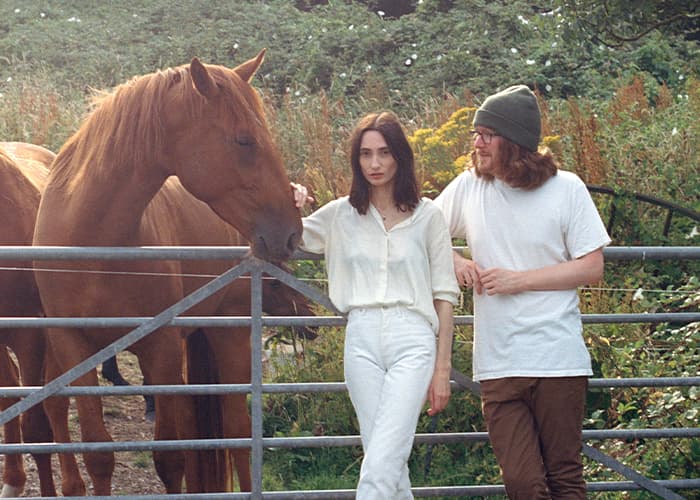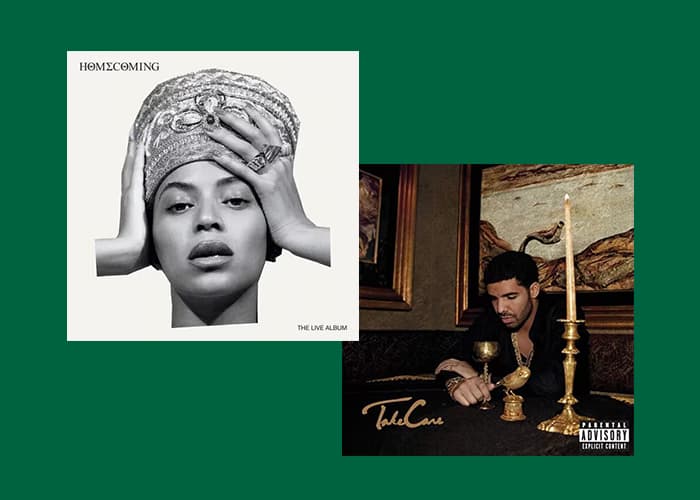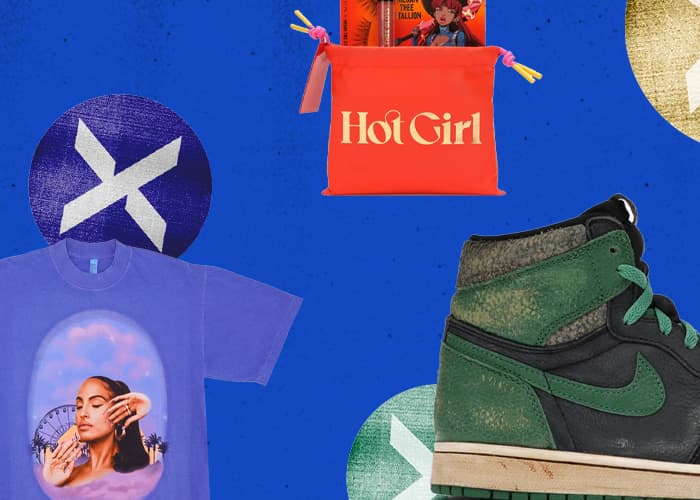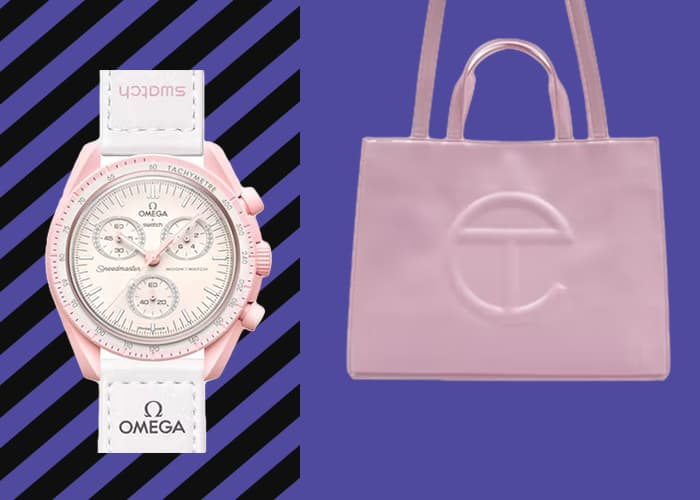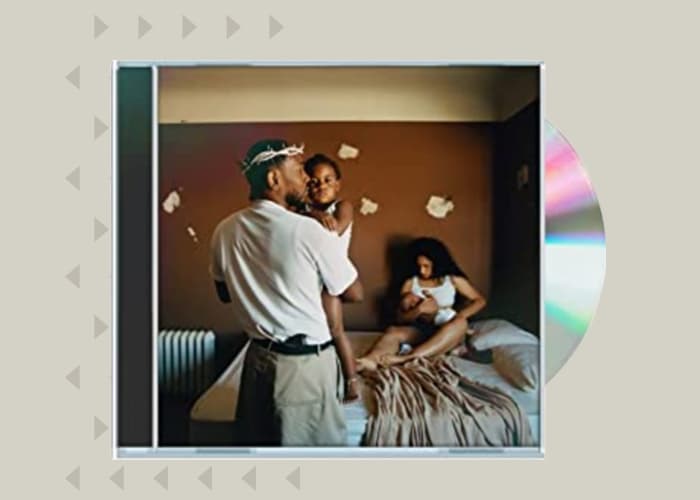How dow you navigate through countries and cultures seeking to flatten and essentialize who you are? How do you maintain a sense of self despite a lifetime of political, social, and geographical displacement? If you’re Dua Saleh, you create, and you create amazing art.
From the ongoing political and humanitarian crisis in Sudan to the Rondo neighborhood in St. Paul, Minnesota, Dua Saleh explores and explodes the limits of identity on their debut EP, “Nūr.” Equal parts poet, MC, soul singer, and clown they are creating some of the most vital and original music coming out of this, or any, country.
They recently stopped by StockX for an in-depth discussion about their influences, their family history, and the ever-present cultural renaissance in the Twin Cities. So get to know this rising star and check out the latest edition of “Off The Top.”
The following interview has been lightly edited for length and clarity.
StockX: Dua Saleh, would you mind introducing yourself?
Dua Saleh: My name is Dua. I’m an interdisciplinary/multidisciplinary performance artist based in Minneapolis. My work focuses on music and music production, primarily. I’ve been performing work from my current project, “Nūr,” which dropped in January.
When you say you’re an interdisciplinary/multidisciplinary artist, what do you mean?
Well, I first started as a spoken word artist, unintentionally. I don’t know if that was me trying to get money off of poetry slams, but I never really won because I broke the rules by accident, and sometimes on purpose. During some of the spoken word performances, I starting singing a capella, breaking the rules. People responded to it, so I thought maybe I should start doing music. So then I started producing music off of my phone, and it developed in that way. Later on, I was broke so I decided to apply for grants and stuff. So many of the grants in Minneapolis are only designed for theater-based work, but I just started applying because I was broke. I started winning theater grants, and I kept doing theater because it’s a different way to capture an audience outside the realm of music.
What were some of the first things that you started doing in theater?
I wrote a short scene incorporating music. It was for the 20% Theater Company called “THE NAKED I: RECOGNIZE/D.” So that was the first thing. The second thing was that I was in a play, “WAAFRIKA 123,” for the first time in my life. All of this was with the 20% Theater Company. This was all within the last couple of years. It was a really traumatic experience because a lot of the content tended to be about gender nonconformity, female genital cutting, torture, and interracial dating. The scenes were intense.
How has theater and theater-based work influenced your music?
Well, I feel like theater has impacted the way that I perform and how I engage with audiences. In my theater work, I like to make direct eye contact and break the fourth wall. I like to be very dramatic. I like to contort my body in ways that make people uncomfortable. I usually incorporate music into the theater work that I do, so there’s that connection between my music and my theater work.

Tell me about your family history.
I was born in Kassala, Sudan. My family fled Sudan as political refugees. I lived in Eritrea for like five years of my life; then I moved to the U.S. We first moved to North Dakota, then Maine, New Jersey, and then Minnesota. I moved around a lot, something like 17 times. My mother pretty much raised me. It was only my brother, my sister, and my mom for most of my life.
What was going on in Sudan that led you to become a political refugee?
There’s an ever-growing crisis in Sudan. For me, this crisis is ever-present because I came to the U.S. as a political refugee because of what was happening to my people in Darfur. But now it’s happening in the main cities, too. People that have been classified as Arab are being killed and viewed as not being African. It’s a terrifying situation. I’m scared for my family because they live in the cities. People should know about it; they should know this is happening.
Of all the places you’ve lived, what made Minneapolis stick?
It wasn’t anything particular. I think I gravitated towards it because Minneapolis is the one place I’ve stayed the longest. So Minneapolis is home base because I don’t really have one. There’s a lot of people who share similar identities as me in the Twin Cities, especially Minneapolis. There’s a lot of trans- and gender-nonconforming people. And there’s a lot of creative people who identify similar to me. So it just like felt authentic and real; it feels like I can stick around Minneapolis because I know the people and they know me. They understand me in a way that other people don’t when I leave the Twin cities.
How have the Twin Cities influenced you?
I feel like everybody’s a product of their environment. I feel like my lyricism wouldn’t be as strong without all the poets I’ve been surrounded by for most of my life. In the Twin Cities, I’m surrounded by amazing musicians, producers, creatives, everything. I feel like it’s crazy because I didn’t even know so many creative people surrounded me at first.
The Twin Cities have a small footprint in current conversations about culture and style. Why Do you think people ignore them?
I feel like there’s a cultural renaissance that’s happening in Minneapolis and the Twin Cities, but I also feel like there’s always been a cultural renaissance here. It’s fucking crazy, everybody is so fucking creative. You listen to the music, the poetry, the theater, or watching them dive into fashion in ways that I’ve never seen people do in different cities; I feel privileged to be surrounded by so many creatives and artist that constantly make work that inspires me.

What was your first memory of music?
I feel like I’ve been immersed in music since I was a kid. My mom would always be banging music on her speakers. She’d play old Sudani singers because they were very theatrical. But I don’t think music was a huge part of my life for a long time. Music wasn’t that important to my life until about three years ago.
When you listen to music, do you focus on the vocals or instrumentals first?
I think it depends on my mood. I like the perfect combination of all the things together. I like perfect melodies; I like perfect words. I think I’m more melody-driven than anything else. The first thing that I hear is melody; the second thing I hear is production; the third thing I hear is the words. I know that sounds counter-intuitive.
How do you describe the type of music you create: R&B, hip-hop, soul, or some mixture of everything?
At my core, I’m an R&B head and a hip-hop head. So those are the two main styles in my musical realm. I also have bangers that I’ve made that have rock influences and are very punk. I listen to a lot of different genres of music. So I guess that’s why my music sounds eclectic to people. As for the soul influence, I think that’s probably an impact from the Sudani musicians that I’ve listened to and black American artists that have distinctively influenced me, primarily from the 1940s. I used to just dig through the ’40s’ bins at record stores for like two years for no reason. I wanted to be bougie in high school. I was on some shit. I was also on some shit with the ’90s’ hip-hop wave, too.
We’ve talked about music and theater, but what about poetry and spoken word?
Writing is the first thing I remember doing. I’ve always been writing. My mom said that I’d been writing since I was four. I was surrounded by the Koran and very poetic and very stunning texts. So I’ve just been surrounded by that. And Sudan is known for its poets, that’s one of the main things that is notable from Sudan. I was surrounded by poetry all the time; poetry is even in the way that people speak in Sudan. It’s beautiful, but it’s not like they’re trying to do anything to make it sound like super poetic, it’s just the way they speak.
How do you explore constructions of identity in your music and art?
Inherently, I feel like identity is at the forefront of everything that I do. I’m not even trying to do it, it’s just, like, I am who I am [laughs]. The first thing that I do when writing music, outside of like finding the melody, is to think of a picture or a story or something that the song or beat reminds me of. The main thing is that I want someone to feel like they’ve digested a part of me in some way. I like listening to music, and I want to hear music that has a storyline and a catchy melody; I like to feel like someone is divulging their feelings, whether it’s bliss and ecstasy, or devastation, turmoil, and pain.

Were you a sneakerhead growing up?
I was too broke, and I didn’t have money for sneakers. I didn’t even know anything about the brands growing up. Now, though, I feel like I’m a quarter of a sneakerhead, more or less.
What influences your style?
I like things that have longevity. I think I have my mom’s fashion sense because the stuff that she’s had for years still looks tight as fuck. I’m also influenced by a lot of people in the Rondo neighborhood. It’s the place that I’ve stayed the longest in St Paul. Rondo has a lot of old heads who went through a lot of different eras in the 1970s and 1980s. They’re all very in tune with their own sense of style, and it’s more relaxed, it’s more comfortable and colorful. A lot of queer creatives also influence me. Artists like Mykki Blanco and Kelela who have incorporated fashion into almost every element of their work impacts me.
How do you describe your style?
I don’t like being constrained. I like to be comfortable. I’m going to be honest, if I didn’t have to, I wouldn’t wear a bra, you know what I mean? Like, why the fuck would I constrain myself? It’s painful. Outside of that, I’m a clown. People take me very seriously, but I’m a clown. I think those are the main two things that describe my style—not being constrained and being a clown. I don’t know if anybody else would describe my style this way [laughs]. Oh, I’m also influenced by old heads a lot, in both music and style. I like ’90s’ hip-hop and ’70s’ jazz artists; I’m very influenced by their music and fashion.

Do you have a project you’d care to talk about?
We haven’t thought of a name for the new project; we’ve been debating stuff. So I can’t give you a name for the new project. But we’ve made a lot of music, and I’m excited about this music. I’ve made music in Arabic before, but I haven’t released it, or I’ve only used it for theater work. So I’m excited about the new music because that part of my identity—creating music in Arabic and being Muslim—is more in the forefront. It’s like it’s transferred over and bled into the new work, into these r&b and hip-hop type songs.
Do you worry about recording and releasing r&b and hip-hop in Arabic during this very open xenophobic and bigoted moment in American society?
No matter what I do, it’s going to be essentialized because we exist in this place. I try not to essentialize myself from the point of view of the Western world. When I’m writing in Arabic, I’m not even thinking about it. It’s just that these are words that I’ve put together in the same way that I’ve put words together in English. But I understand the impact of writing in Arabic, and I understand the ways that people could respond to my writing very differently.

To wrap things up: how will you know when you’ve made it; what does success look like?
When I’ve caught that bag [laughs]. Probably when the narrative reaches a broader audience. This is probably a selfish way to measure it, but when people start being able to engage with me in a way that’s holistic and doesn’t erase parts of who I am. Whether that’s the part of me that’s gender nonconforming; whether that’s me being Sudani and a refugee; whether that’s me growing up in some very impoverished areas in the United States; whether that’s me being a clown. When people take all of these parts of me together, I’ll feel like I’ve successfully done my part and feel satisfied with it. But I feel like you can never really gain true satisfaction. Maybe when I buy my mom a house, I’ll feel like maybe I’m okay now [laughs].
Anything else people should know about you?
I have a new remix project coming out very soon. And this fall, the new project, with new content, is coming out. There’ll probably be a tour and stuff like that.


